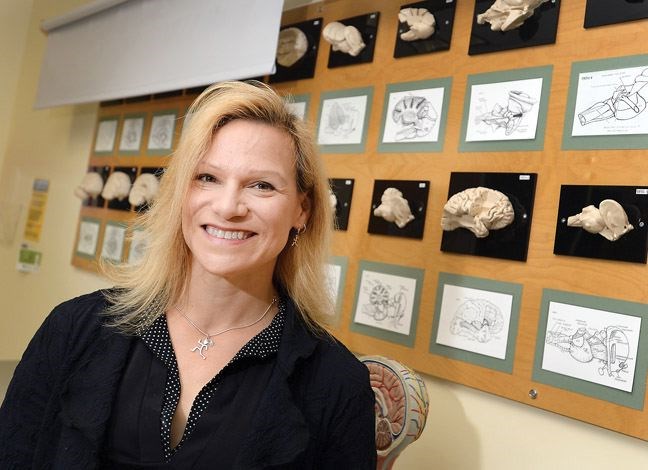A new study from the Northern Medical Program at UNBC shows that taking a relatively high dose of vitamin D helps brain function.
Dr. Jacqueline Pettersen, a cognitive/behavioral neurologist, compared two groups of healthy adults, one taking high vitamin D doses and the other taking low doses.
Various cognitive functions were assessed before and after treatment.
Pettersen found that the group that received the high dose performed significantly better with tasks specifically related to visual memory.
Pettersen also found that the benefits were even more pronounced among those with lower levels of vitamin D to begin with.
"This is one of the first studies to demonstrate a positive effect of vitamin D supplementation on brain function in healthy adults," said Pettersen.
"While there has been good evidence that vitamin D improves memory in animal models, research to date has been limited with respect to humans."
The study involving the "sunshine vitamin" was carried out as part of an 18-week randomized trial with 83 participants ranging in ages from 20 to 76 years old.
The average age was 55 and 67 per cent of those who participated were female.
All were from northern B.C.
"We know it's common to be insufficient in vitamin D in the north because our winters are so long," Pettersen said.
"That's why I wanted to explore this. I am from Prince George and memory is something that particularly interests me."
Areas of testing included verbal memory, visual memory and executive functioning. Those with higher doses of vitamin D excelled significantly in tests involving visual memory.
Vitamin D insufficiency has been estimated to affect one billion people worldwide.
As a nutrient that helps the body absorb calcium, vitamin D helps maintain healthy bones and teeth while helping muscles, nerves and the immune system to function properly.
Research continues to show that vitamin D may be linked to lowering the risk of diseases such as multiple sclerosis and cancer.
Vitamin D must either be synthesized in the skin in response to the sun's UVB rays or consumed through diet with foods such as salmon, cow's milk, eggs and fortified yogurts.
And for places in northern latitudes such as Prince George, there are not enough UVB rays to help make vitamin D during several months of the year.
"Food is a poor source of vitamin D. It's just not enough especially here in the north so it's so important to supplement this," said Pettersen.
"These results have implications for public health. For people living in northern B.C. and other regions with extended winters, the findings suggest they should be supplementing with vitamin D during the cold weather months and also taking a dose higher than the current recommended daily amount."
But, according to Pettersen, it's still unknown if supplementing with high doses for long periods of time is recommendable as there are likely other important factors that need to be considered.
Dr. Pettersen's research is related to other studies she is currently pursuing including the role of genetics and exploring the balance between vitamin D intake along with other nutrients such as calcium, zinc, vitamin K2 and vitamin A.



